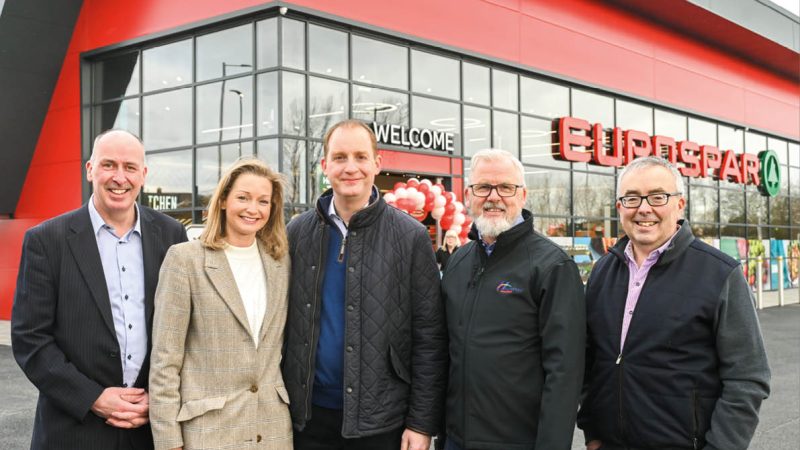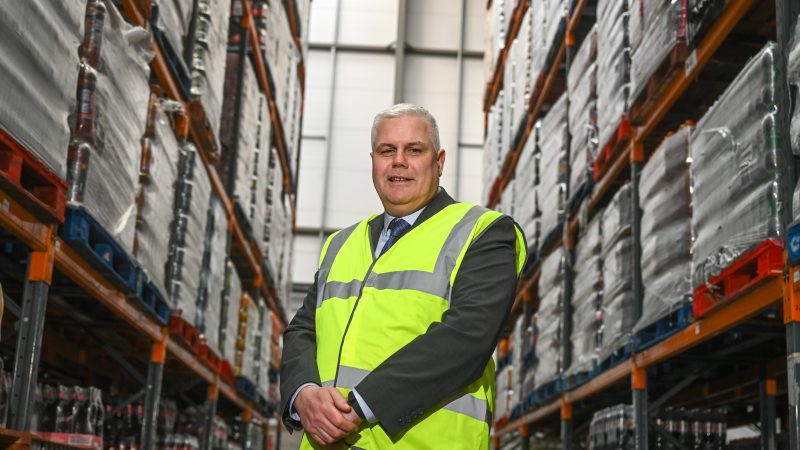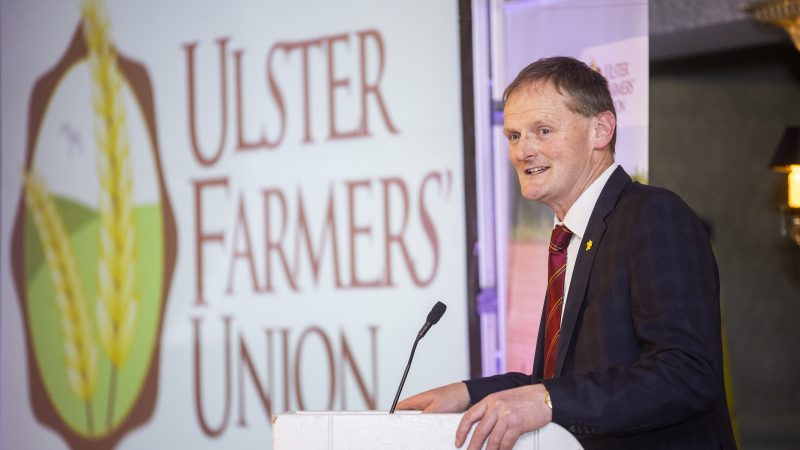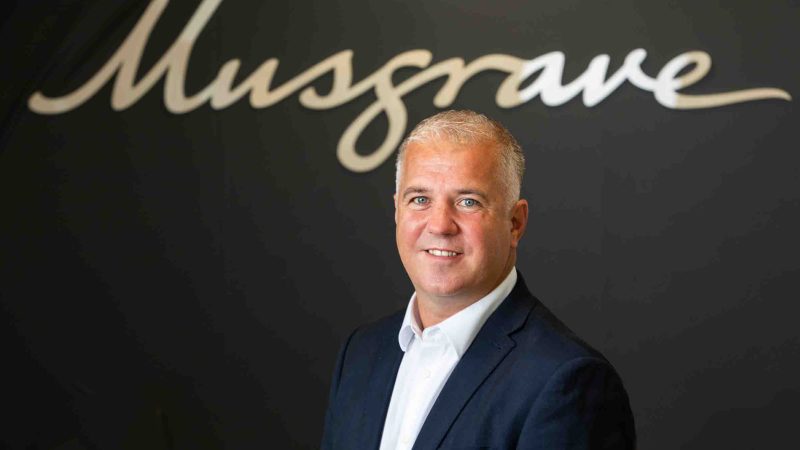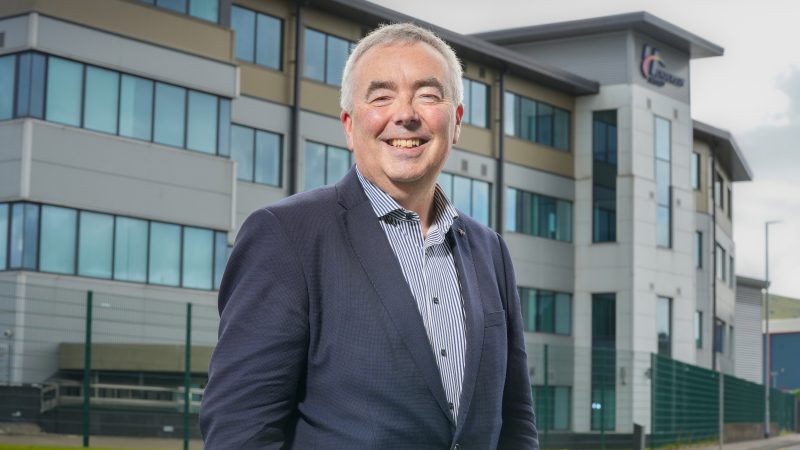Business as usual

Brian Madderson, chairman of the PRA, forecasts the biggest issues affecting Northern Ireland’s forecourt industry in 2020.
Having spent the last year lobbying the government on behalf of its members in Northern Ireland and the rest of the UK, when Neighbourhood Retailer speaks to Brian Madderson, chairman of the Petrol Retailer’s Association (PRA), the mood in the industry is broadly positive.
December’s general election saw the Conservative party re-elected with a clear majority that the PRA believes should bring more stability when implementing policies at a national level.
“Over the last two-three years there has been so much fighting amongst politicians which is affecting the civil service. It is positive that we now have a government that will be able to govern and implement its policies; it’s not just business as usual but business with more optimism, “ says Brian.
Likewise, the restoration of the Executive at Stormont means that Northern Ireland can finally begin to start allocating public funds and tackling issues after three long years of absenteeism.
Further afield, growing tensions between Iran and the US aren’t posing an immediate concern for the UK’s forecourt sector as the price of Brent Crude Oil settled back down to below 65 dollars per barrel just 48 hours after accelerating to 70 dollars during the initial reports of unsettlement.
Electric vehicles
However, there is still much work for the PRA to do, especially through assisting its members with the latest advice and legislation on Electric Vehicles (EVs).
Brian reveals that the recent appointment of the London Fire Brigade’s former technical expert, Ray Blake, as chairman of the Petroleum Enforcement Liaison Group (PELG) is a step towards tackling the safety concerns regarding electric charging stations on forecourts.
Including PELG, there are now three organisations considering the ramifications of having powerful electric machinery so close to petrol pumps. The Energy Institute has produced a document for filling stations called Blue Book and IET Standards also has its own code of practise for EV charging equipment installation.
“All of these are under review as we enter the brave new world of electrification because we are moving rapidly up the scale in terms of electric capabilities” says Brian.
The PRA advises site owners to do extensive research before plunging into the EV charging point market.
At home charging points start at 7kW but the type of rapid charging points seen on forecourts can range from 50kW to 350kW. Unsurprisingly, the costs of installing such powerful equipment can cost millions of pounds and is simply not affordable for the average forecourt owner.
“Don’t go with a company that might take up your valuable parking space for 10-30 years,” says Brian. “Also, be careful about your electricity supply as it might cost you a lot of money.
Although numbers of EVs on the roads increased by 144 per cent last year, the total figure remains small with only 40,000 new EVs registered in 2019. Without serious financial incentives from the government, Brian believes the UK will struggle to meet its proposed target of no new petrol and diesel cars by 2030.
“I see the government’s plans as very ambitious but without a lot of foundation for that ambition.
“In this current market I wouldn’t knock down fuel dispensers to make way for EV charging points because there is a rapidly changing technological scene and we need to see what will emerge as the best solution in five to 10 years time.”
After all, electric isn’t the only alternative fuel.
“At a recent APEA conference I heard a very good summary on alternative fuels by the chief executive of the German-based Elaflex Group. He was saying we really shouldn’t put all of our eggs in the EV market because of the whole problem with electricity supply and charging availability. There are so many other fuels coming along like gases including; CNG (Compressed Natural Gas), LPG (Liquid Petroleum Gas), as well as hydrogen and synthetic fuels.
“There’s not going to be one solution, there’s going to be a whole range of solutions.”
Unregulated hand car washes
In addition to keeping its members up-to-date on the future of alternative fuels, the PRA will also be targeting illegal car washes in 2020. Having incorporated the Car Wash Association into its group two years ago, the organisation has been lobbying the government right around the UK for better co-ordination between all regulatory bodies which are involved with raids and inspections.
“I was somewhat disappointed to read recently that the PSNI had visited many hand car washes in Northern Ireland and found many Eastern European workers are happy to be paid well below minimum wage,” says Brian. “While these people might not be trafficked or involved in slavery, they are able to undermine existing law abiding and taxpaying businesses by undercutting them and taking them out of the market.”
A report produced by experts at Nottingham University on the’ Labour Exploitation in Hand Car Washes’ highlights a number of solutions including educating workers and employers, improving public engagement, and increased enforcement of regulations.
However, for this to happen, the PRA calls on the government to take heed of the very real threat to those in the industry who are paying taxes.
“If the various government bodies are not clamping down and regulating this properly, then the UK and Northern Ireland will continue to be the European capital for unregulated hand car washing.”
Business breakout
Also this year, the PRA will be lobbying the government for a reduction in the duty rate on fuel to at least two pence per litre.
“This is based upon the treasury’s own modelling using the Laffer curve that has showed tax reductions in the medium term can significantly boost economic activity and ultimately produce more tax.”
What Chancellor Sajid Javid’s first budget means for the forecourt industry, and fuel duty, will be discussed at length during the PRA’s next meeting in Belfast, which will occur just two weeks after the Budget announcement on March 11, 2020.
“As always we wish our members in Northern Ireland a very happy New Year. We shall be over in March again with our Business Breakout in Belfast and look forward to seeing them and talking through these, and many other issues arising for them,” concludes Brian.
The PRA’s next Business Breakout in Belfast will take place March, 26, 2020 at the Crowne Plaza, Shaw’s Bridge. Register to attend at: www.ukpra.co.uk



